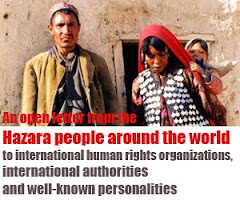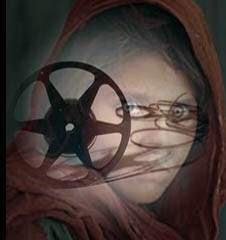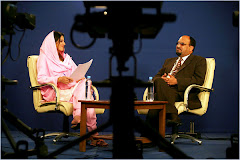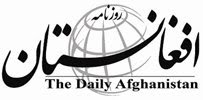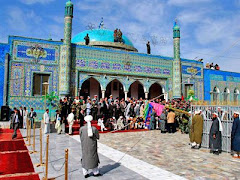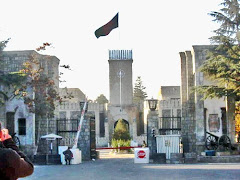
The year 2007 was called the bloodiest year after 2001 for Afghanistan, by some international organizations overseeing the security, human rights situation, violence and peace process.
In this year, in addition to killing of many civilians including women and children in the suicide attacks of the Taliban and air strikes of the NATO and the Coalition Forces, the journalists were also very badly under pressure of censorship by the governmental officials as well as pressure of intimidation and death threats by the extremists, fundamentalists and warlords.
Therefore this year was a bloody year for the journalists too, since some journalists like, Ajmal Naqshbandi, Zakia Zaki and Shekaiba Sanga Amaj were killed and many others were whether imprisoned, tortured, faced with violence, faced with death threat and intimidation and or were forced to flee the country.
Here you read about the situation of Afghan journalists in the sixth annual IFJ press freedom report 2007 – 2008 published in their website.
 AFGHANISTAN
AFGHANISTAN
SIXTH ANNUAL IFJ PRESS FREEDOM REPORT FOR SOUTH ASIA (2007-2008)
Media Workers KilledJune 1 2007: Shokiba Sanga Amaaj, who worked at the private Shamshad Television channel, was shot dead at home. The AIJA could not confirm that Shokiba was killed due to her work, but she had suffered intimidation and received several threats warning her to stop working at the station.
June 6 2007: Zakia Zaki, journalist and producer of Peace Radio, gunned down inside her home near Kabul. Unidentified gunmen fired seven bullets into her. She died instantly in the presence of her eight-year-old son. The case remains unsolved.
December 28 2007: Abdul Munir, producer and presenter of Afghanistan Radio Television in Jawzjan (RTA-Jawzjan), was shot dead, when he was traveling from Jawzjan to Mazar-e-Sharif and his bus came under attack by an armed gang of looters.
January 14 2008: Carsten Thomassen, a Norwegian reporter for Dagbladet, was killed after a suicide bomb attack at the Serena Hotel in Kabul. He was hit by gunfire during the attack and later died during surgery.
Physical Harm, Threats and Intimidation.May 24 2007: Abdul Manaf, a journalist of Radio Saday-e- Nejrab was on his way to a relatives’ house in Kapisa Province, when he was fired upon by an unidentified gunman. He was seriously wounded when a bullet struck his left thigh.
May 30 2007: Ahmad Shokib Dost, reporter for Ariana TV, was mistreated by security officials inside the parliamentary house while he was preparing a report of the day’s parliamentary session.
June 12 2007: Farida Nekzad, chief editor of Afghanistan’s only independent news agency, Pajhwok and the vice-president of South Asia Media Commission received death threats by both phone and email.
June 23 2007: copies of the Mashal weekly in Kandahar city, were gathered by a faction loyal to MP Noor-ul-Haq Alumi, preventing its distribution.
July 24 2007: Fazal Rahman Oria, editor in chief of Mashal weekly received death threats from supporters of General Dostum, the Commander in Chief of the Afghan National Army. Also a letter from the office of the Chief of Army staff was sent to the Media Violation Commission of the Information and Cultural ministry, warning of the consequences should they ignore it.
June 27 2007: Abdul Muaeed Hashimi, Regional Reporter of Pajhwok Afghan News Agency and Khan Wali Kamran, Reporter of Ariana TV, were stopped by police. Both journalists and their driver were badly beaten by armed National Security Directorate (NSD) officers and the Laghman governor’s bodyguards, with the butts of their AK-47s.
August 4 2007: Kamran Mir Hazar, chief editor of website Kabul Press was arrested after publishing articles critical to high ranking government officials and was later released. Hazar shut down Kabul Press because of the constant intimidation and pressure from officials.
August 12 2007: Yawali Ghagh Radio was attacked by Taliban forces. In previous incidents they abducted the station’s security guard and set the station on fire.
August 15 2007: Sayed Ismail Ansari, Director of ART in Kunduz told the AIJA, he had been receiving death threats for two weeks in the form of text messages, letters and phone calls from Taliban insurgents.
August 22 2007: Charles Dubois and Patrice Roy, cameraman and journalist for Radio-Canada Television, traveling with Canadian troops from Zerai District, Southern Kandahar to Kandahar city sustained injuries when a roadside bomb hit their vehicle.
August 28 2007: Qasim Rahimi, Ariana TV reporter, was stopped and beaten by security officials on his way to attend a press conference of Taliban representatives at the Red Crescent Society office in Ghazni province.
August 30 2007: copies of Kuner magazine were confiscated by Governor Farmanullah Zahid, before they could reach the public, after an article critical of the Kuner Governor had been published.
September 2 2007: Ghulam Ali Sarem, chief editor of Etesam monthly magazine, came under attack from the ANA when he was photographing the result of a suicide attack in an army bus which killed 30 people and injured 20 more.
September 12 2007: Marajuddin Manzoor, was forcefully prevented from entering the radio station he manages because it had been taken hold of by Khwaja Abdul Rahim, District Chief of Karabagh with the support of the US media organisation Internews. The issue was later resolved.
September 24 2007: Radio Stations Milli Paygham and Radio Istiqlal, both established with the technical support of Internews, a US-based media organisation, were attacked by unidentified gunmen.
September 30 2007: Farid Ahmad, the cameraman of Afghanistan Radio Television (RTA) was injured when he was trying to film an underground mine being demolished.
September 2007: Lal Pacha Azmoon, senior Journalist, and provincial representative of AIJA in Nangarhar received death threats for a year and a half, from persons, who identified themselves as loyal to the Taliban.
October 10 2007: Mohammad Hanif Elham, presenter of Ariana Radio programme, Emroze Der Tarekh told the AIJA that he had received threats more then four times in the previous five months, from anonymous callers.
October 12 2007: Mujhad Jawad, reporter with Liberty Radio told the AIJA that after broadcasting reports condemning suicide attacks, he received threats from the Taliban.
October 18 2007: Fayez Khorshidi , reporter for Press TV of Iran was abducted by foreign military and beaten until he became unconscious. He said after regaining consciousness he was interrogated, then released.
October 22 2007: Dayan Ahmadi regional reporter of Liberty Radio for Takhar and Badakhshan Provinces received death threats from the warlord Habib-ur-rahman, about whom he had published critical stories.
November 2 2007: chief editor, Khalil Amiri and coordinator, Sheer Agha Nejati of Faryad Radio came under the attack of gunmen just outside their office in the western province of Herat. Both journalists were badly beaten and Amiri was injured.
November 5 2007: Masoud Hussaini, photographer for Associated Press, was beaten by the security guards of the Afghan president.
November 12 2007: a rocket struck Radio Saday-e-Nejrab but didn’t cause any damage. Previously the station’s manager Abdul Mutalib Hamid had received anonymous death threats.
November 15 2007: Fazal Rahman Oria, chief editor of the daily Erada had been frequently summoned before the Religious and Cultural Affairs Commission to explain his publication of articles critical of government members.
December 3 2007: Ali Asghar Akbarzada, producer of the programme Ayna-e-Shahr RTA was targeted by unidentified gunmen, when he was on his way home. He was unhurt.
December 4 2007: Omar Mohammadi, radio journalist for Salam Watandar, was verbally abused and threatened by police and their district commander, while covering a suicide attack on the road to the airport in Kabul.
December 25 2007: Shoaib Ahmadi, reporter for Cheragh daily, was preparing reports about the achievements of an Afghani boxer. As a result of an argument the journalist was kicked and punched by the Olympic Committee’s Head of Kickboxing.
December 15 2007: Kabul Shahan weekly was forced to relocate its offices after the newspaper’s owner, Sidiqullah Sahil, received a threatening letter stamped and signed by the Taliban Islamic Emirate of Afghanistan.
December 30 2007: Mina Habib, a journalist of Cheragh daily was forced to delete pictures by police after she had photographed police beating a boy selling from a roadside cart.
February 13 2008: Journalist Attaullah Sahil, presenter and reporter of Estiqlal Radio in Logar province was beaten by personnel of the Afghan NSD in Logar province.
February 18 2008: five journalists from various media were threatened with guns by security officials outside the Balkh prison as the Deputy Minister for Commerce and Industries, Zia-ud-din Zia, visited the site.
March 28 2008: Radio Zafar attacked when two armed gunmen entered the premises, tied up the security guards and set the station on fire.
April 6 2008: Radio Faryad producer Khadija Ahadi’s, home attacked with a grenade. Part of her home was destroyed. Khalil Amiri, owner and chief editor also reported being interrogated by the ANSD.
Date Unknown: Muhammad Rasoul Adil, regional reporter of Ariana TV, was beaten by police when he was preparing a report using photos of bodies of Afghan National Army (ANA) officers in Khost province. He sustained serious trauma to his arms and lower back.
Date Unknown: Reporter Waliullah Shahin and three colleagues at al Jazeera television – a cameraman, technical engineer and driver – came under attack from an unidentified gunman on their way to Helmand province. Waliullah Shahin was hit by a bullet which injured his foot.
Date Unknown: Sher Mohammad Jahish, chief editor of Radio Arzoo in Pulkhumri city has received threats on more then 16 occasions. These threats followed two broadcasts by Radio Arzoo, which exposed a mail-order fraud.
Date Unknown: Habib Saeedi, journalist for Trajmir Radio in the Baghlan province, told AIJA that he published a report of an armed conflict between two local commanders. He was then abducted, beaten and held in captivity for more than 12 hours by the two commanders. He was rescued by police.
Abduction and DetentionsJuly 1 2007: Muhammad Asif Nang, chief editor of Aman Magazine and spokesperson for the country’s office of administration was arrested by security officials on the request of President Hamid Karzai for an article he published. He was detained for 13 days.
July 25 2007: Afghan Danish Journalist, Najeeb Khawaja, his Afghan driver and translator, who worked for an international magazine were kidnapped by Taliban insurgents from the residence of tribal leader, Haji Madar and held in detention for 14 hours.
July 25 2007: German Journalist, Park Tock, a translator and driver kidnapped from the residence of tribal leader, Haji Madar and held in detention for 14 hours by Taliban insurgents from Taangar village.
August 8 2007: Kamran Mir Hazar, chief editor for website Kabul press and reporter of Salam Watadar Radio, was re-arrested outside his office by gunmen of the ANSD. Following increasing pressure from journalists, media activists, AIJA and CPAJ he was released after six hours of detention unharmed.
August 28 2007: Mohammad Zahir Bahand, reporter of Salaam Watandar was kidnapped by two armed men on motorbikes, who identified themselves as Taliban. First they tied and covered his eyes and then he was interrogated. He was freed after an hour.
September 2 2007: Javid Ahmad, a journalist with Canadian TV (CTV) was arrested in Kandahar, after allegations he had improper contact with Taliban. He has been kept in military detention without charge.
October 6 2007: Mujahid Kakar, chief editor of Lemar TV, was arrested by security officials for allegedly publishing an inappropriate picture from a suicide attack. Kakar was released on the same day.
October 27 2007: Sayed Parvez Kambakhsh, reporter for Jahan-e-Naw daily and journalism student at Balkh University, was arrested by security officials for allegedly downloading an article with anti-Islamic content. He has been sentenced to death for blasphemy and remains in detention.
November 4 2007: Ghows Zelmay, spokesman for the Attorney General, was arrested by police, in the Torkhum area, at the border between Pakistan and Afghanistan. Ghows Zelmay published a Dari translation of the Quran. He remains in detention.
November 4 2007: Aziz Ahmad Tassal, reporter for Institute of War and Peace Reporting, Abdul Samim from al-Jazeera TV, Aziz Ahmad Shafi, a freelance journalist, and Abdul Wadoud Hejranwere detained and for questioning by security officials after interviewing the Taliban. They were released after several hours in detention.
November 25 2007: four journalists from Cheragh daily detained for several hours by security officials after a controversial article was published.
November 28 2007: Ehsanullah Shahidzai, journalist for RTA was detained by the Afghan NSD and accused of having ties with Taliban rebels. He was released on December 4. Ongoing, from December 15 2001: Al-Jazeera cameraman Sami al-Hajj, known as prisoner 345 is the only journalist held at Guantánamo Bay. A Sudanese national, he has been detained as “an enemy combatant” for more than five years without trial. Al- Hajj was arrested at the border between Pakistan and Afghanistan, while on assignment to cover the war against the Taliban. He was transferred to Guantánamo in June 2002.
Date Unknown: Amir Shah and Fifnik Abrashi, reporters for Associated Press (AP), were detained when they attempted to report on the police search of Tolo TV. Police detained both journalists for several hours. Their release came after AP communicated with the President’s office in Kabul.
Date Unknown: Muhammad Reja, Manager of Daikundi Radio was detained for six hours on the command of Daikundi’s Governor, Sultan Ali after he published a report linked to the country’s economic and financial ministries.
Click here to read the Sixth Annual IFJ PRESS FREEDOM REPORT for South Asia (2007-2008) Nilofar Habibi
Nilofar Habibi 22, the presenter for Herat local public television channel who is lately threatened and injured by unknown people in Herat (photo from Aatash.org)






















































